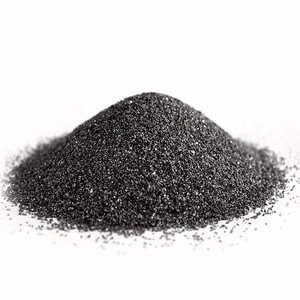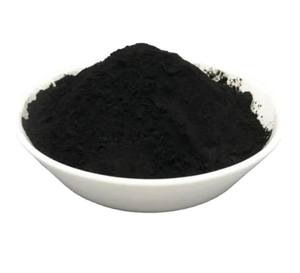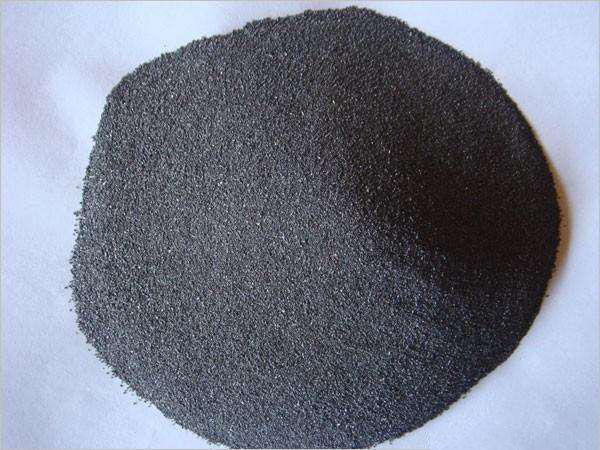Overview of High Hardness Silicon Nitride Si3N4 Ceramic Grinding Ball Mill Jars for Planetary Ball Mill Machine
Silicon Carbide (SiC) ceramic balls are spherical components made from high-purity silicon carbide, a synthetic ceramic material recognized for its exceptional hardness, wear resistance, and thermal stability. These balls are engineered to withstand demanding conditions, where conventional materials like steel or even standard ceramic balls may fail, making them invaluable in precision engineering and high-performance applications.
Features of High Hardness Silicon Nitride Si3N4 Ceramic Grinding Ball Mill Jars for Planetary Ball Mill Machine
-
Extreme Hardness: With a Mohs hardness rating close to diamond, SiC ceramic balls exhibit superior resistance to scratching and abrasion.
-
High Wear Resistance: Thanks to their hardness and low friction coefficient, they experience minimal wear, extending their lifespan in abrasive environments.
-
Superior Corrosion Resistance: Inert to most chemicals, they resist corrosion and degradation, even in acidic or alkaline conditions.
-
Thermal Stability: Retain their dimensions and mechanical properties over a wide temperature range, making them ideal for high-temperature operations.
-
Low Density: Being lighter than traditional metal balls, they reduce centrifugal forces and inertia in high-speed applications.
-
Electrically Insulating: Non-conductive nature allows their use in electrical and electronic applications requiring insulation properties.
-
Low Thermal Expansion: Minimal dimensional changes due to temperature fluctuations ensure consistent performance in precision applications.

(High Hardness Silicon Nitride Si3N4 Ceramic Grinding Ball Mill Jars for Planetary Ball Mill Machine)
Parameters of High Hardness Silicon Nitride Si3N4 Ceramic Grinding Ball Mill Jars for Planetary Ball Mill Machine
The grinding ball size in the planetary ball mill machine depends on various factors such as the material to be ground, operating conditions, and the required finish particle size. Generally, the standard ball size in a planetary ball mill is 15-20mm.
Regarding parameter details:
1. Motor power: The motor power can be adjusted based on the desired speed of rotation of the mill. Generally, a motor power between 150 to 200kW can be used.
2. Speed: The speed of rotation of the mill can be controlled using various control systems. The most common method is to use an electro-mechanical drive system that can vary the speed of the motor by adjusting the voltage or current applied to the motor.
3. Fill ratio: The fill ratio refers to the percentage of the grinding material that needs to be added to the mill per revolution. The fill ratio should be optimized based on the type of material being ground and the desired grind size.
4. Disc thickness: The disc thickness can affect the operation of the ball mill. A thicker disc will result in slower rotation, while a thinner disc will result in faster rotation.
5. Operating temperature: The operating temperature of the mill can affect the behavior of the materials being ground. Higher temperatures can cause damage to the materials and may require more frequent maintenance.
6. Load capacity: The load capacity of the mill can be increased by increasing the size of the balls used in the mill or by using larger grinding jars.
7. Material compatibility: Different materials require different grinding methods. It’s essential to select a grinding media that is compatible with the material being ground and the desired grind size.
8. Balance: Maintaining a proper balance in the mill is crucial to ensure accurate grinding results. The weight of each jar and the weight of the grinding media can affect the rotation speed of the mill.
9. Air pressure: The air pressure inside the mill can affect the acceleration of the grinding media during rotation. It’s important to maintain an appropriate pressure inside the mill to achieve efficient grinding.
10. Motor size: The motor size can affect the torque delivered to the grinding jar. Smaller motors will generate less torque, which can lead to slower rotation rates. On the other hand, larger motors will generate more torque, which can result in faster rotation rates.

(High Hardness Silicon Nitride Si3N4 Ceramic Grinding Ball Mill Jars for Planetary Ball Mill Machine)
Company Profile
MyCarbides is a trusted global chemical material supplier & manufacturer with over 12-year-experience in providing super high-quality carbides and relative products.
The company has a professional technical department and Quality Supervision Department, a well-equipped laboratory, and equipped with advanced testing equipment and after-sales customer service center.
If you are looking for high-quality carbide materials and relative products, please feel free to contact us or click on the needed products to send an inquiry.
Payment Methods
L/C, T/T, Western Union, Paypal, Credit Card etc.
Shipment
It could be shipped by sea, by air, or by reveal ASAP as soon as repayment receipt.
Applications of High Hardness Silicon Nitride Si3N4 Ceramic Grinding Ball Mill Jars for Planetary Ball Mill Machine
-
Bearings: In high-speed, high-temperature, or corrosive environments where traditional metal bearings fail, SiC balls offer longer service life and reliability.
-
Valve Components: As check valve balls and seats in petrochemical processing, resisting corrosion and wear from aggressive media.
-
Pump Seals: Used in mechanical seals for pumps handling abrasive slurries or corrosive fluids, reducing maintenance and downtime.
-
Aerospace: In ball bearings and mechanisms requiring lightweight, high-strength components capable of withstanding extreme temperatures.
-
Semiconductor Manufacturing: As components in vacuum pumps and other equipment where particle contamination must be minimized.
-
Precision Instruments: In measurement and control devices where dimensional stability and longevity are critical.
FAQs of High Hardness Silicon Nitride Si3N4 Ceramic Grinding Ball Mill Jars for Planetary Ball Mill Machine
Q: Are High Hardness Silicon Nitride Si3N4 Ceramic Grinding Ball Mill Jars for Planetary Ball Mill Machine magnetic?
A: No, silicon carbide is a non-magnetic material, making these balls suitable for applications where magnetic interference must be avoided.
Q: How do High Hardness Silicon Nitride Si3N4 Ceramic Grinding Ball Mill Jars for Planetary Ball Mill Machine compare to steel balls in terms of durability?
A: SiC balls are significantly harder and more wear-resistant than steel, making them last longer in abrasive or high-stress applications, though they may be more brittle.
Q: Can High Hardness Silicon Nitride Si3N4 Ceramic Grinding Ball Mill Jars for Planetary Ball Mill Machine be used in food processing equipment?
A: Yes, due to their inertness and corrosion resistance, SiC balls are suitable for use in food-grade equipment, complying with hygiene standards.
Q: What is the typical size range for High Hardness Silicon Nitride Si3N4 Ceramic Grinding Ball Mill Jars for Planetary Ball Mill Machine?
A: Sizes can vary widely, from micrometers for precision applications to several centimeters for larger industrial uses, depending on the specific requirement.
Q: Are High Hardness Silicon Nitride Si3N4 Ceramic Grinding Ball Mill Jars for Planetary Ball Mill Machine costlier than metal balls?
A: Generally, yes, due to the advanced manufacturing processes involved and the material’s superior properties, SiC balls tend to have a higher upfront cost but offer long-term benefits in durability and reduced maintenance.

(High Hardness Silicon Nitride Si3N4 Ceramic Grinding Ball Mill Jars for Planetary Ball Mill Machine)





